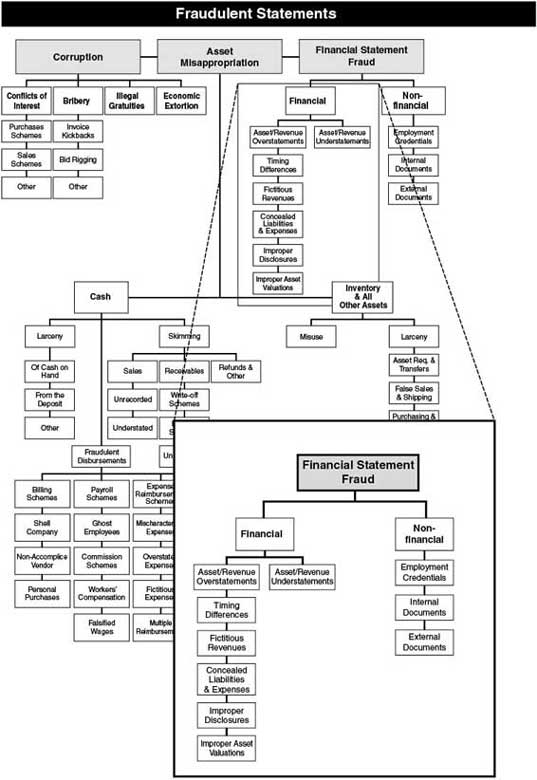CHAPTER 12
Accounting Principles and Fraud

INTRODUCTION
When I was in the FBI during the 1970s and 1980s, the workaday financial statement fraud came from bank borrowers, either individual or corporate. Under the Bank Secrecy Act, financial institutions are required to notify the FBI of possible fraud by their borrowers in connection with a host of activities, most of it dealing with loan fraud.
The typical financial statement fraud case did not impress the typical FBI agent because many of us learned the hard way that some banks attempted to use the government as a collection agency. A common complaint by agents was that the banks would do little due diligence on borrowers before lending money. Many of the financial statements in bank loan files I examined would make an accountant laugh. Most were unaudited, a clue; and a number contained simple math errors on the balance sheet or income statement; in short, they did not even add up, another clue.
But in order for the financial statement fraud to be a violation of federal statutes, the lender was required to have relied on the false financials to some extent in making the loan. In most instances, the reality was that the numbers were in the bank’s loan files only to conform with government regulations. Banks, in general, prefer hard collateral. And if the collateral loses its value or disappears when the loan goes into default, ...
Get Corporate Fraud Handbook: Prevention and Detection, 4th Edition now with the O’Reilly learning platform.
O’Reilly members experience books, live events, courses curated by job role, and more from O’Reilly and nearly 200 top publishers.

